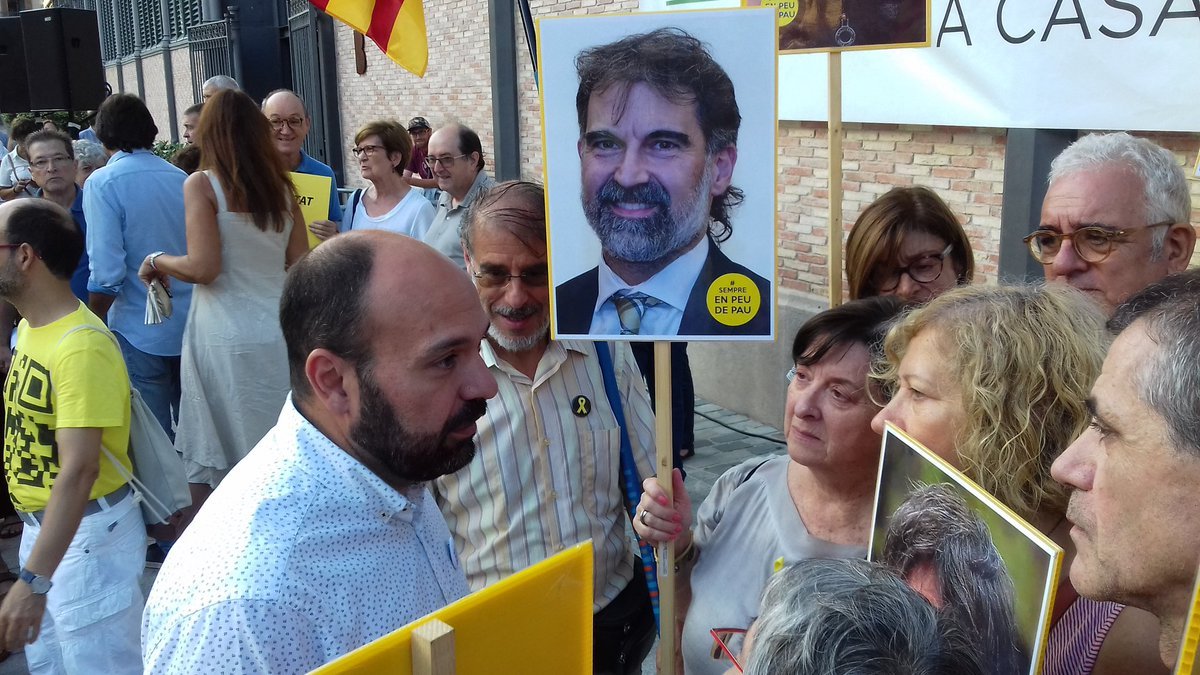The imprisonment of social and cultural leaders for long periods without trial: it's something that happens in "countries like Turkey, Russia and China" - with well-known democratic deficits. But thanks to the events of the last year, the state of Spain can now be considered in the same light.
This point was made on Sunday by the vice president of the Catalan civil group Òmnium Cultural, Marcel Mauri. The president of Òmnium, Jordi Cuixart, has this weekend completed 11 continuous months behind bars as a "preventive" measure, part of Spain's crackdown after last October's Catalan independence referendum; Cuixart was sent to prison along with fellow civil leader Jordi Sànchez on 16th October last year; and seven other independence movement figures have also now been held by Spanish justice for periods of many months.
Mauri, speaking on the 11th anniversary of the Jordis' imprisonment, mentioned that, furthermore, all the Catalan political prisoners are held in jail, still without trial, on accusations that "have been shown to be false".
@marcelmauri, vice president d'@omnium: "It is a shame that social, civic and cultural leaders are in prison. This only happens in countries like Turkey, Russia and China. 11 months afterwards without judgement|trial and with accusations that it have been demonstrated that" pic.twitter.com/7zUcJFUL73 "are false"
— Cultural Òmnium (@omnium) 16 of September 2018
Mauri reiterated the idea of "putting the state in the dock" when the trial of these prisoners finally begins, since all the imprisoned leaders did was to defend "the institutions, democracy and the fundamental rights of the people of this country". The trial is expected to begin in the next few weeks. Mauri says he is confident that in this autumn which will be "full of events", Catalans will continue to get out on the streets.
The Òmnium vice president has already urged Catalans to take part on 20th September in a rally outside the Catalan government's department of economy - the one-year anniversary of the protest for which Cuixart and Sànchez were accused of rebellion. The date, said Mauri, marks one year since "the start of the attacks on the Catalan institutions".

